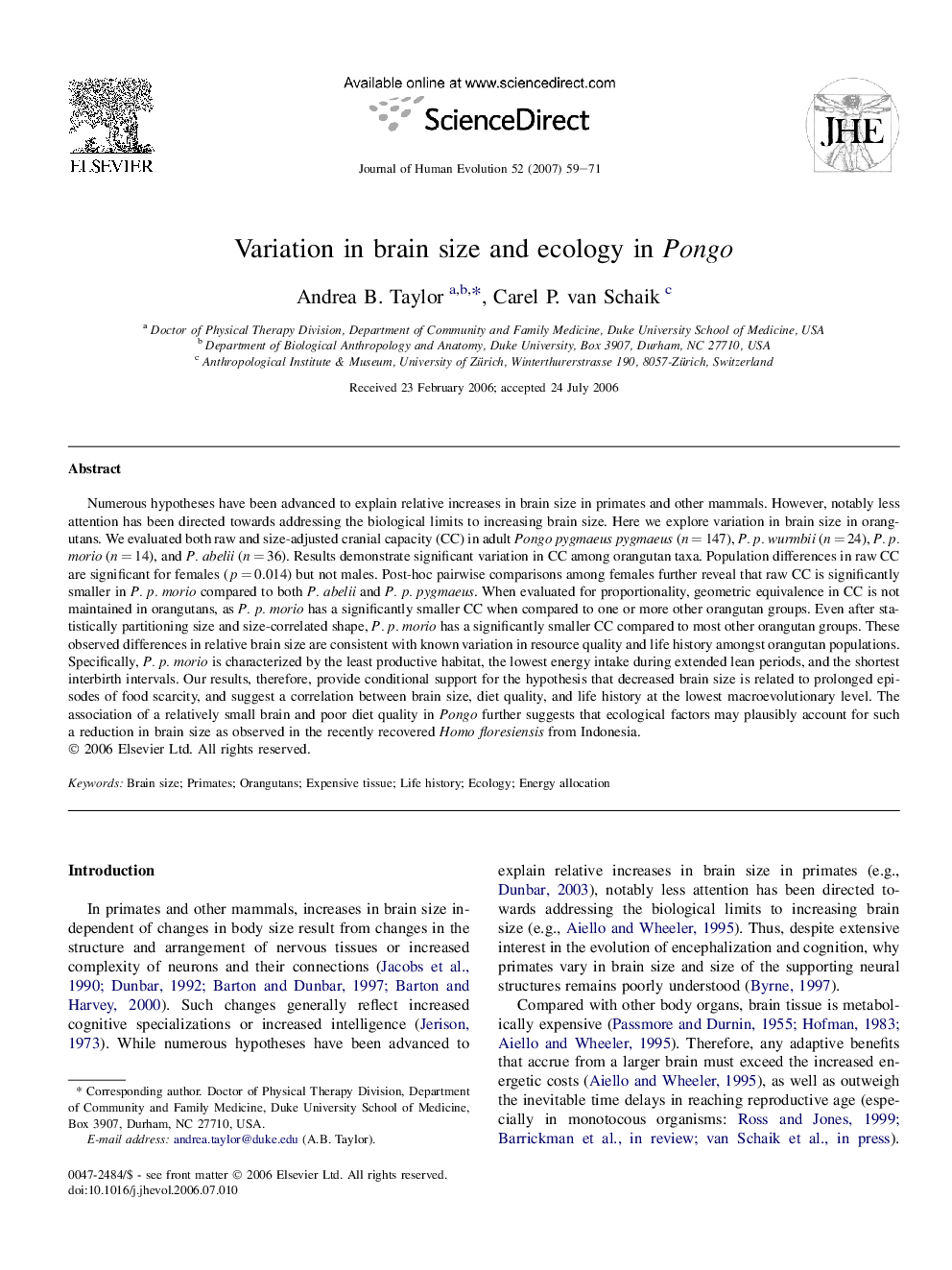| کد مقاله | کد نشریه | سال انتشار | مقاله انگلیسی | نسخه تمام متن |
|---|---|---|---|---|
| 4557427 | 1329563 | 2007 | 13 صفحه PDF | دانلود رایگان |

Numerous hypotheses have been advanced to explain relative increases in brain size in primates and other mammals. However, notably less attention has been directed towards addressing the biological limits to increasing brain size. Here we explore variation in brain size in orangutans. We evaluated both raw and size-adjusted cranial capacity (CC) in adult Pongo pygmaeus pygmaeus (n = 147), P. p. wurmbii (n = 24), P. p. morio (n = 14), and P. abelii (n = 36). Results demonstrate significant variation in CC among orangutan taxa. Population differences in raw CC are significant for females (p = 0.014) but not males. Post-hoc pairwise comparisons among females further reveal that raw CC is significantly smaller in P. p. morio compared to both P. abelii and P. p. pygmaeus. When evaluated for proportionality, geometric equivalence in CC is not maintained in orangutans, as P. p. morio has a significantly smaller CC when compared to one or more other orangutan groups. Even after statistically partitioning size and size-correlated shape, P. p. morio has a significantly smaller CC compared to most other orangutan groups. These observed differences in relative brain size are consistent with known variation in resource quality and life history amongst orangutan populations. Specifically, P. p. morio is characterized by the least productive habitat, the lowest energy intake during extended lean periods, and the shortest interbirth intervals. Our results, therefore, provide conditional support for the hypothesis that decreased brain size is related to prolonged episodes of food scarcity, and suggest a correlation between brain size, diet quality, and life history at the lowest macroevolutionary level. The association of a relatively small brain and poor diet quality in Pongo further suggests that ecological factors may plausibly account for such a reduction in brain size as observed in the recently recovered Homo floresiensis from Indonesia.
Journal: Journal of Human Evolution - Volume 52, Issue 1, January 2007, Pages 59–71